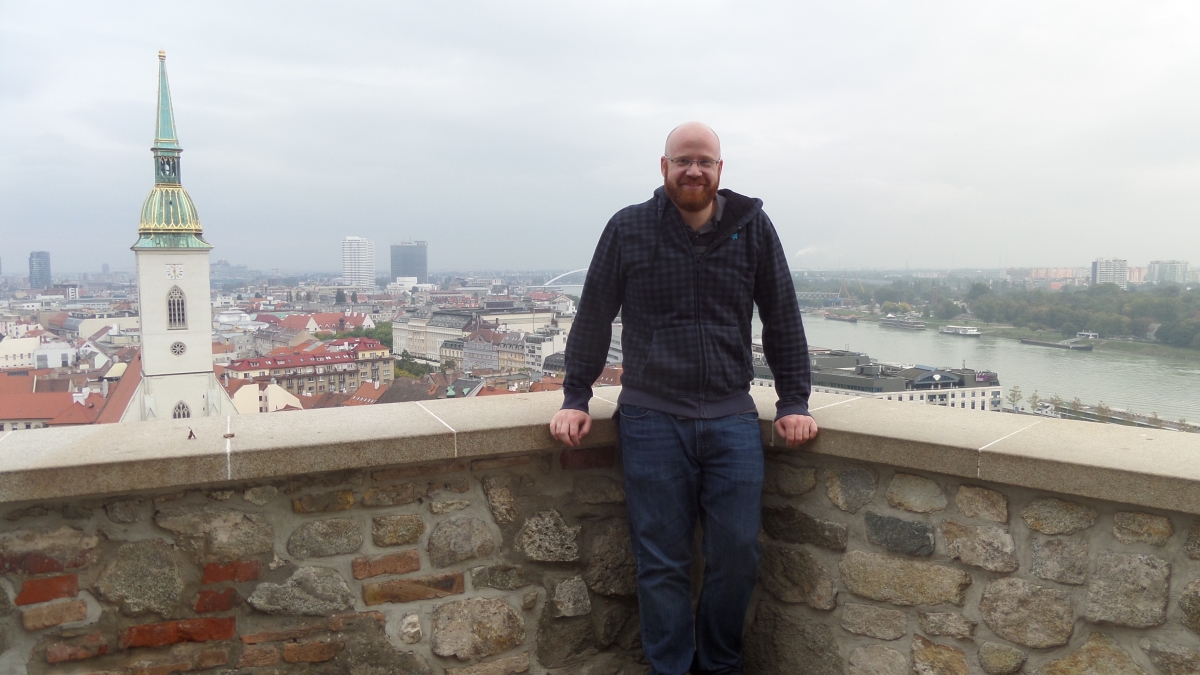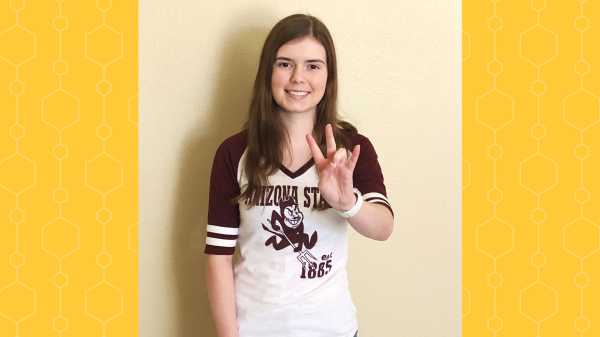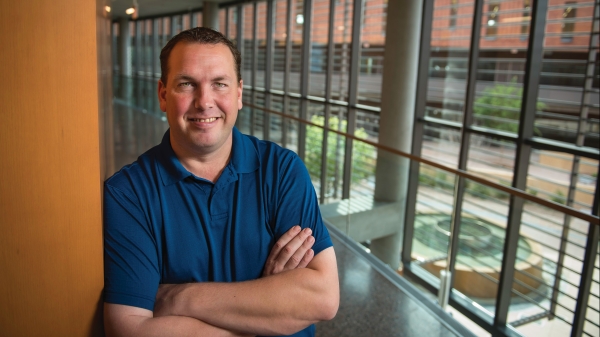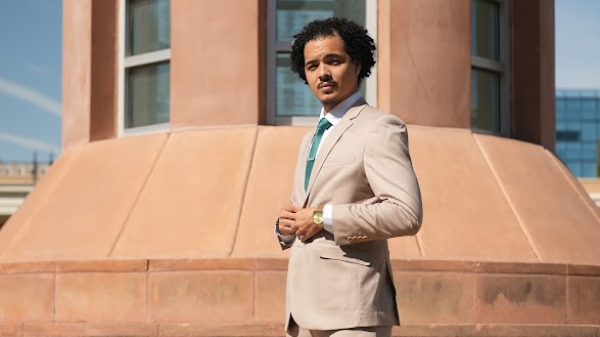ASU student studies role of social media in building transnational gay identity
Jeremy Quist conducted his master’s capstone research across five countries in Central and Eastern Europe

Editor’s note: This is part of a series of profiles for spring 2017 commencement. See more graduates here.
In a world often divided by ideological and cultural differences, social media has the ability to bring people together regardless of geographic location.
“Social media knows few borders,” said Jeremy Quist, a May 2017 graduate of the School for the Future of Innovation in Society’s Global Technology and Development master’s degree program.
Quist, who has a bachelor’s degree in political science, tested out the borderless nature of social media firsthand while conducting his master’s capstone research in Central and Eastern Europe about the effects of social media on transnational gay identity.
Social media has played a role in transforming and creating other transnational movements, Quist said, from global environmental advocacy to radical Islamist recruitment.
Choosing Central and Eastern Europe for the study wasn’t a random decision. The year before, Quist had participated in an ASU study abroad program in Romania. While there, he saw some graffiti that, in his view, summed up the gay experience worldwide and planted the seed for his capstone project.
“It was two block characters, one with its arm around the other’s shoulder, with the words, ‘We two boys together clinging,’ a quote from a Walt Whitman poem,” he said. “LGBT people have lived that way for a very long time — clinging to each other while facing outside opposition,” Quist wrote on his blog, wetwoboys.com.
Quist points out that gay identity is unique among identities, which makes it a fascinating subject to study.
“It’s not a nationality, race, an ethnicity or a culture, but it’s part of who you are,” he said.
During his capstone research, Quist spent three months traveling around the Czech Republic, Slovakia, Austria, Hungary and Romania interviewing gay men to learn whether they had feelings of attachment to other gay people across borders.
Transnational gay identity can serve as a way for the LGBTQ community to provide support to one another across borders in ways personal, social, cultural and political, Quist said.
“My research brings together levels of identity — national, transnational and gay identities — and discusses how they interact with each other in ways that I have not seen done elsewhere,” he said.
The five Central and Eastern European countries provided an interesting backdrop for the study, because several countries in this cluster ended communism and began transitioning toward democracy at the same time, Quist said. Homosexuality is legal in all five countries, but acceptance varies.
Working through LGBTQ organizations in each country, Quist was able to conduct 15- to 20-minute interviews with 57 English-speaking gay men. Even though the interviews were completely anonymous, the challenge of finding subjects varied from country to country, Quist said.
Quist’s results show that for many gay people — including people in his study — a transnational gay identity does exist. One of the study’s more important findings showed that respondents generally felt a stronger attachment to the transnational gay community than they did to their own local or national gay community.
Overall, transnational influence does appear to lead to greater equality and inclusion, Quist said.
“My research shows that a transnational gay identity is forming, and it would imply that the future would only increase that trend as social media and other international interaction becomes even more pervasive,” he said.
This shows promise for a larger and more inclusive LGBT community across borders.
“The implications of what social media has done are massive,” Quist said. “Social media makes a real difference in real individual’s lives.”
The study provides a good foundation for further research, and Quist welcomes the opportunity to take the project to the next level.
“There’s a lot of room to grow from where I started,” he said. “The research is a case study of one particular region, but the principles involved are of potentially universal application. Research in other places would need to be done to demonstrate that.”
Ultimately, this research could help international LGBT organizations to be more sensitive to the cultural and national contexts of the areas in which they work, Quist said. “If that were to happen, I would consider it a pretty big win.”
“For the goal of inclusiveness to be reached, we need many Jeremy Quists out there doing solid, meaningful research on these questions and making important contributions,” said Gary Grossman, associate director for programs with the School for the Future of Innovation in Society, and Quist’s capstone mentor
Because of the policy and practical experience he gained through his master’s program, Quist might seek a position within government or with an LGBTQ rights organization.
“I’m casting a wide net right now,” he said. “Designing, executing and analyzing my own research project is something that will be valuable no matter what I choose to do.”
Written by Marilyn Hawkes
More Sun Devil community

Community college transfers triumph at ASU spring graduation
Peyton Jergenson's transfer journey from Glendale Community College (GCC) to Arizona State University, set to culminate this semester as she graduates with her a degree in kinesiology, underscores…

Matt Carter Staff Spirit Awards program honors legacy of ASU employee
In December 2023, the W. P. Carey School of Business lost colleague and friend Matt Carter. Carter joined the school in 2013 and was a member of the facilities department throughout his time at ASU…

Education grad strengthens family's legacy at ASU
Editor’s note: This story is part of a series of profiles of notable spring 2024 graduates. For Ahlias Jones, his Sun Devil family legacy runs deep. His mother, father, sister and two brothers all…